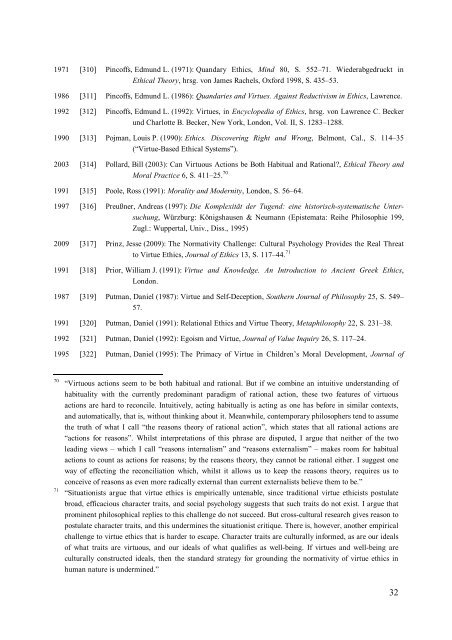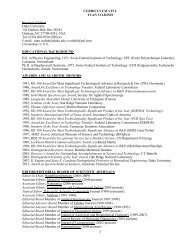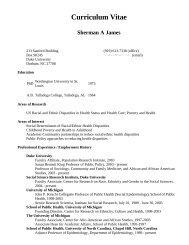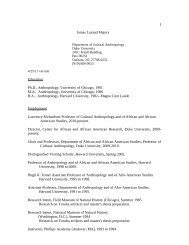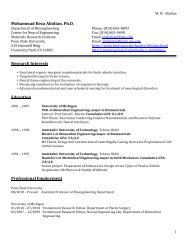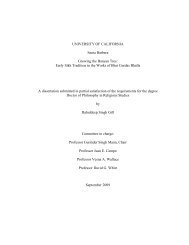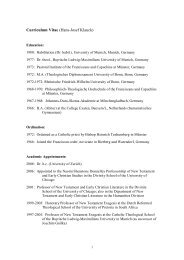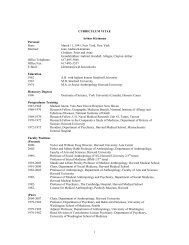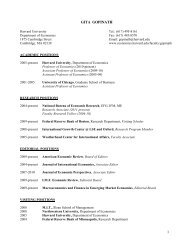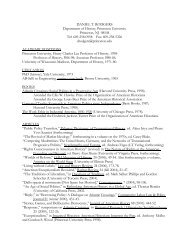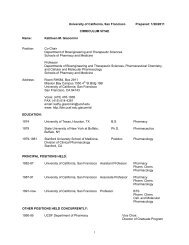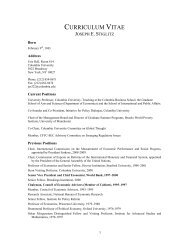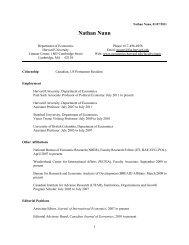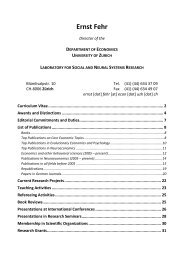Literatur zur Tugendethik Bibliography on Virtue ... - Academic Room
Literatur zur Tugendethik Bibliography on Virtue ... - Academic Room
Literatur zur Tugendethik Bibliography on Virtue ... - Academic Room
- No tags were found...
Create successful ePaper yourself
Turn your PDF publications into a flip-book with our unique Google optimized e-Paper software.
1971 [310] Pincoffs, Edmund L. (1971): Quandary Ethics, Mind 80, S. 552–71. Wiederabgedruckt inEthical Theory, hrsg. v<strong>on</strong> James Rachels, Oxford 1998, S. 435–53.1986 [311] Pincoffs, Edmund L. (1986): Quandaries and <strong>Virtue</strong>s. Against Reductivism in Ethics, Lawrence.1992 [312] Pincoffs, Edmund L. (1992): <strong>Virtue</strong>s, in Encyclopedia of Ethics, hrsg. v<strong>on</strong> Lawrence C. Beckerund Charlotte B. Becker, New York, L<strong>on</strong>d<strong>on</strong>, Vol. II, S. 1283–1288.1990 [313] Pojman, Louis P. (1990): Ethics. Discovering Right and Wr<strong>on</strong>g, Belm<strong>on</strong>t, Cal., S. 114–35(“<strong>Virtue</strong>-Based Ethical Systems”).2003 [314] Pollard, Bill (2003): Can Virtuous Acti<strong>on</strong>s be Both Habitual and Rati<strong>on</strong>al?, Ethical Theory andMoral Practice 6, S. 411–25. 701991 [315] Poole, Ross (1991): Morality and Modernity, L<strong>on</strong>d<strong>on</strong>, S. 56–64.1997 [316] Preußner, Andreas (1997): Die Komplexität der Tugend: eine historisch-systematische Untersuchung,Würzburg: Königshausen & Neumann (Epistemata: Reihe Philosophie 199,Zugl.: Wuppertal, Univ., Diss., 1995)2009 [317] Prinz, Jesse (2009): The Normativity Challenge: Cultural Psychology Provides the Real Threatto <strong>Virtue</strong> Ethics, Journal of Ethics 13, S. 117–44. 711991 [318] Prior, William J. (1991): <strong>Virtue</strong> and Knowledge. An Introducti<strong>on</strong> to Ancient Greek Ethics,L<strong>on</strong>d<strong>on</strong>.1987 [319] Putman, Daniel (1987): <strong>Virtue</strong> and Self-Decepti<strong>on</strong>, Southern Journal of Philosophy 25, S. 549–57.1991 [320] Putman, Daniel (1991): Relati<strong>on</strong>al Ethics and <strong>Virtue</strong> Theory, Metaphilosophy 22, S. 231–38.1992 [321] Putman, Daniel (1992): Egoism and <strong>Virtue</strong>, Journal of Value Inquiry 26, S. 117–24.1995 [322] Putman, Daniel (1995): The Primacy of <strong>Virtue</strong> in Children’s Moral Development, Journal of7071“Virtuous acti<strong>on</strong>s seem to be both habitual and rati<strong>on</strong>al. But if we combine an intuitive understanding ofhabituality with the currently predominant paradigm of rati<strong>on</strong>al acti<strong>on</strong>, these two features of virtuousacti<strong>on</strong>s are hard to rec<strong>on</strong>cile. Intuitively, acting habitually is acting as <strong>on</strong>e has before in similar c<strong>on</strong>texts,and automatically, that is, without thinking about it. Meanwhile, c<strong>on</strong>temporary philosophers tend to assumethe truth of what I call “the reas<strong>on</strong>s theory of rati<strong>on</strong>al acti<strong>on</strong>”, which states that all rati<strong>on</strong>al acti<strong>on</strong>s are“acti<strong>on</strong>s for reas<strong>on</strong>s”. Whilst interpretati<strong>on</strong>s of this phrase are disputed, I argue that neither of the twoleading views – which I call “reas<strong>on</strong>s internalism” and “reas<strong>on</strong>s externalism” – makes room for habitualacti<strong>on</strong>s to count as acti<strong>on</strong>s for reas<strong>on</strong>s; by the reas<strong>on</strong>s theory, they cannot be rati<strong>on</strong>al either. I suggest <strong>on</strong>eway of effecting the rec<strong>on</strong>ciliati<strong>on</strong> which, whilst it allows us to keep the reas<strong>on</strong>s theory, requires us toc<strong>on</strong>ceive of reas<strong>on</strong>s as even more radically external than current externalists believe them to be.”“Situati<strong>on</strong>ists argue that virtue ethics is empirically untenable, since traditi<strong>on</strong>al virtue ethicists postulatebroad, efficacious character traits, and social psychology suggests that such traits do not exist. I argue thatprominent philosophical replies to this challenge do not succeed. But cross-cultural research gives reas<strong>on</strong> topostulate character traits, and this undermines the situati<strong>on</strong>ist critique. There is, however, another empiricalchallenge to virtue ethics that is harder to escape. Character traits are culturally informed, as are our idealsof what traits are virtuous, and our ideals of what qualifies as well-being. If virtues and well-being areculturally c<strong>on</strong>structed ideals, then the standard strategy for grounding the normativity of virtue ethics inhuman nature is undermined.”32


